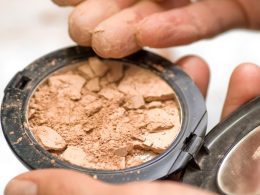Meet Dr. Michelle Henry
In a world where skin cancer is often underrepresented among Black individuals, we introduce you to the esteemed dermatologist, Dr. Michelle Henry. With a wealth of experience and a dedication to dermatological health, Dr. Henry is here to empower the Black community with essential knowledge about skin cancer. Armed with her expertise, we’ll delve into the critical aspects of skin cancer prevention, early detection, and overall skin health.
The Unseen Epidemic: Skin Cancer in the Black Community
Skin Cancer’s Hidden Prevalence
Skin cancer may not be top-of-mind for many in the Black community, but it’s a growing concern. While individuals with darker skin have some natural protection against harmful UV rays due to increased melanin levels, they are not immune to skin cancer.
Dr. Henry’s Expert Take
Dr. Henry explains that skin cancer can often go unnoticed in individuals with darker skin tones, as symptoms may be less pronounced. This delayed diagnosis can lead to more advanced stages of cancer. Therefore, awareness and proactive measures are crucial.

Understanding Skin Cancer
Types of Skin Cancer
There are three primary types of skin cancer:
- Basal Cell Carcinoma: The most common type, often characterized by shiny, pink or red bumps.
- Squamous Cell Carcinoma: Appears as scaly, red patches or open sores that may bleed.
- Melanoma: The most deadly form, typically presents as irregular moles with asymmetrical borders and varying colors.
Empowering Health: Prevention and Early Detection
Prevention Tips
- Sun Protection: Always use sunscreen with SPF 30 or higher, even on cloudy days. Wear protective clothing, including wide-brimmed hats and sunglasses.
- Seek Shade: Limit direct sun exposure during peak hours (10 a.m. to 4 p.m.).
Early Detection Advice
- Skin Self-Exams: Regularly examine your skin from head to toe, looking for any changes, unusual moles, or new growths.
- Annual Skin Checks: Schedule an annual skin cancer screening with a dermatologist, particularly if you have a family history of skin cancer.
Dr. Henry’s Recommended Products
Sunscreen
- Broad-Spectrum Sunscreen: Opt for a broad-spectrum sunscreen designed for all skin types and tones.
Moisturizer
- Hydrating Lotion: Keep your skin well-hydrated with a gentle, hydrating lotion.
Self-Examination Tools
- Handheld Mirror: Use a handheld mirror to aid in inspecting hard-to-see areas of your body.
A Word of Encouragement
Breaking Stigmas
Dr. Henry emphasizes the importance of breaking stigmas surrounding skin cancer in the Black community. By raising awareness and encouraging regular check-ups and self-examinations, we can empower individuals to take control of their skin health.
Community Support
Community support and education play a vital role in addressing this issue. Sharing knowledge, experiences, and resources can help individuals better understand the risks and importance of prevention.
Empowering Health: A Visual Summary
To enhance your understanding, here’s a visual summary of the key points discussed in this article:
| Topic | Key Takeaways |
|---|---|
| Skin Cancer Types | Basal Cell Carcinoma, Squamous Cell Carcinoma, Melanoma |
| Prevention Tips | Sun protection, seeking shade |
| Early Detection | Skin self-exams, annual skin checks |
| Recommended Products | Broad-spectrum sunscreen, hydrating lotion, handheld mirror |
Conclusion: Your Skin Matters
Thanks to Dr. Michelle Henry’s expert insights, the Black community can empower themselves with knowledge and take proactive steps toward preventing skin cancer. Your skin matters, and by prioritizing sun protection, regular self-examinations, and annual check-ups, you can reduce the risk of skin cancer and promote overall skin health.
Remember, early detection is key, and breaking stigmas surrounding skin cancer is a collective effort. Together, we can ensure that skin cancer is no longer an unseen epidemic in the Black community, but a well-informed and empowered health priority.












